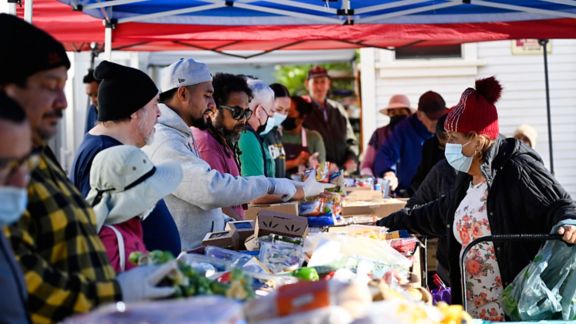Evaluation of Minnesota’s Home & Community-Based Services (HCBS) Assessment Process

Problem
A need for insights to improve Minnesota’s HCBS assessment process.
There are several known barriers influencing access to and utilization of HCBS that exist within and across populations, including knowledge of available services, available languages for services, lack of culturally relevant information on services, lack of training for coordinators and care providers, stigma against care for disabilities, and differences in eligibility. These barriers have been shown to have a disproportionate impact on different demographic groups.
Solution
NORC is engaging community members to capture their experiences with Minnesota’s HCBS assessment process.
NORC is leading a qualitative evaluation that will engage community members throughout the research process and capture their perspectives and experiences with the HCBS assessment process. Our community-engaged research approach includes convening a community advisory board to inform and decide on evaluation design, research questions, data collection approaches, analysis and interpretation of results, and dissemination. In addition, we will recruit and train community members to serve as interviewers.
Our evaluation approach includes in-depth and continuous engagement with community partners as well as semi-structured interviews with HCBS lead agency staff and community members eligible for HCBS and their caregivers. This will include engaging a mix of community members with experiences relevant to the HCBS population with regards to age, disability, geographic location (rural, urban, suburban), participation in the HCBS process (service recipients, providers, caregivers), and different demographic groups. Through this evaluation, we aim to develop a deeper understanding of how people learn about HCBS, what works and what does not work about the HCBS assessment process, and why people choose or do not choose HCBS.
Result
This work will yield insights that can improve Minnesota’s HCBS policies.
Findings from this evaluation will be available in two phases: findings relating to Latinx, Somali, and Hmong Minnesotans, and findings related to Tribal Nations and communities. These findings will be disseminated with research participants, community members, community organizations, and Minnesota policymakers. With input from a multidisciplinary advisory group of leaders and subject matter experts, these findings will be used to inform future work to develop measures, recommendations, and a framework to identify, measure, and assess disparities in the HCBS assessment process.
Are You a Study Participant?
For any questions related to our evaluation or an interview, please reach us at:
Related Tags
Project Leads
-
Petry S. Ubri
Senior Research ScientistProject Director -
Meaghan Hunt
Senior Research ScientistProject Manager -
Carol Hafford
Senior FellowSenior Advisor









